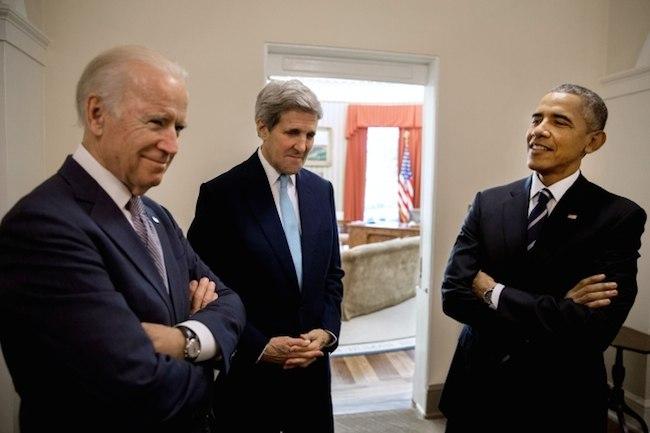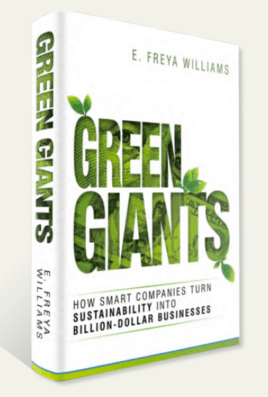By Darshan Goswami
There is a green energy revolution underway in India that can increase prosperity for millions of poor families by harnessing the abundant and clean energy of the sun. With the right policies in place, India can easily become a world leader in solar energy. This solar endeavor could also help address acute power shortages, and make a real difference in slowing the pace of climate change.
Since being elected in May 2014, Prime Minister Narendra Modi has outlined his vision for increasing India’s renewable energy capacity five-fold from 30 gigawatts to 175 gigawatts, including a boost in solar power generation from 20 GW to 100 GW. The plan is to achieve these targets by 2022. But to do so, India needs a national energy policy, regulatory programs and innovative financing mechanisms that encourage the development of distributed energy, particularly applications that combine solar generation with energy storage.
India has already taken positive steps by announcing very aggressive goals to meet 40 percent of its energy needs through renewables by 2030. I firmly believe that, with favorable policies and strategic economic investments, India could meet all of its energy needs through renewables by 2050.
Solar power potential in India
India is endowed with abundant free solar energy. Using the country’s deserts and farm land and taking advantage of 300 to 330 sunny days a year, India could easily generate 5,000 trillion kilowatt-hours of solar energy. In other words, India could easily install around 1,000 GW of solar generation — equivalent to four times the current peak power demand (about 250 GW) — using just 0.50 percent of its land. In addition, India can produce over 200 GW from wind power.
As economist and activist Jeremy Rifkin said, while speaking in New Delhi in January 2012: “India is the Saudi Arabia of renewable energy sources and, if properly utilized, India can realize its place in the world as a great power — but political will is required for the eventual shift from fossil fuels to renewable energy.”
India is both densely populated and has high solar insolation, providing ideal conditions for the exponential growth of solar power as a future energy source. With GDP growing at about 8 percent, solar photovoltaic power is the only renewable energy resource that can bridge the ‘gap’ between supply and demand. Solar energy can transform India and help to bring about decentralized distribution of energy, thereby empowering people at the grassroots level and eliminating the need for costly expansion of transmission and distribution systems.
How can india achieve its economic, environmental and energy goals?
Like other developing economies, much of India’s energy currently comes from coal. But, as with other countries, use of fossil fuels has led to crippling pollution, dramatic public health problems and global debate on climate change. However, these countries (especially India), can turn to the sun for a much cleaner source of energy. After decades of promise, the technology now exists to replace our dangerous addiction to fossil and nuclear power plants with cheap, clean solar energy.
For India, a combination of solar power and energy storage is the answer to true energy independence. For their part, the Indian government has taken several measurable steps toward improving infrastructure and power reliability but, more needs to be done — and fast. Along with expediting the adoption of solar and other renewable energy resources, to secure its energy future India urgently needs to implement innovative policies and financing mechanisms (such as capital and interest subsidies, viability gap funding, concessional finance, etc.) to promote increased use of abundant, sustainable, solar energy.
In addition, microgrids have the potential to change the way communities generate and use energy, can reduce costs, increase reliability and improve environmental performance. Microgrids can be used to take substantial electrical load off the existing power grid and so reduce the need for building new or expanding existing transmission and distribution systems.
By implementing the following nine strategies, India can begin to become a solar super power
1. Develop a national renewable energy (RE) policy: Enact and deploy a comprehensive new energy roadmap or innovative RE policies (e.g., PPAs, Net Metering, FIT, etc.) without delay. In addition, set National Renewable Energy Standards/Policy such as 20 percent by 2020, 40 percent by 2030 and 100 percent by 2050 — to create demand, new industries and innovation, and a new wave of green jobs.
2. Invite international developers to meet the revised JSNM targets of 100 GW of solar and 75 MW of wind by 2022 and beyond.
3. Electrifying transportation: Expedite a move to electrify transportation by encouraging expanded use of electric vehicles (EV) and plug-in hybrids, and deployment of solar-powered EV charging stations around the country. Develop and implement time-of-day pricing to encourage charging of vehicles at night and other times when peak demand is low. In addition, launch the public transportation system of the future with zero-emission battery-powered Electric Buses in all major cities to reduce air pollution and reverse climate change.
4. Energy efficiency: Make Energy Efficiency a high priority by expediting the development and implementation of cost-effective energy efficiency standards. To reduce the long term demand for energy, engage states, industrial companies, utilities and other stakeholders to accelerate energy efficiency investments such as large scale nationwide use of LED lamps.
5. Utility-Scale projects: Phase out conventional energy subsidies, and develop a long term plan to replace fossil and nuclear plants with utility-scale renewable generation.
6. Innovative financing solution: Provide innovative financing (including Tax-Free Solar Bonds or Green Infrastructure Bonds, accelerated depreciation mechanism, and access to credit at globally competitive rates, etc.) to instill more confidence from potential investors and decrease the cost of financing for renewable energy projects . Create and fund a national smart infrastructure bank for renewable energy.
7. Develop large-scale “Solar Manufacturing Hubs” in India to facilitate mass production of PV, CSP and CPV equipment.
8. Decentralized energy: Avoid future fossil fuel investments in India and, instead, emphasize nationwide deployment of community scale solar projects (installing 100 million solar roofs, solar co-operatives, and solar cities, etc.) and microgrids with storage. India’s present 40GW solar target should be extended to include photovoltaic panels on the rooftop of every home in India, generating enough power to reduce the country’s massive dependence on fossil fuels.
9. Develop Energy Storage including thermal, grid battery storage (e.g., Tesla Powerwall home battery backup), compressed air/gas, vehicles-to-grid/home, pumped hydro, fuel cells or hydrogen (H2 - produced from renewable energy only), flywheels, superconducting magnets and super capacitors. Develop a “hydrogen economy” plan. If done successfully, hydrogen and electricity will eventually become society’s primary energy carriers for the twenty-first century.
Conclusion
India is standing on the threshold of a green energy revolution that can light up a new era of energy, economic and environmental security. To achieve this goal India needs to fundamentally transform the manner in which it produces, distributes and consumes energy. By doing so, India can reduce its dependence on fossil fuels, create millions of new jobs, and enhance its global competitiveness while decreasing carbon emissions and slowing climate change.
Given its abundant solar insolation, India has already outlined clear plans for future energy production from the sun. Barriers to implementing this renewable energy plan seem to be primarily social and political, rather than technological or economic. The technology is well established and available. If properly developed and used, India’s abundantly available renewable resources could meet all of its energy demand by 2030. Meanwhile, existing generation could be converted to renewable energy by 2050, and used for maintaining a reliable power supply in the interim.
Solar energy offers India the theoretical potential to provide all its long-term power needs. Toward that goal, India has revised its target to reach 100 GW of solar capacity by 2022 and recently announced that 40 percent of its total energy mix would come from alternative sources by 2030. These targets are realistic, desirable and fully achievable.
All that is needed now to make this concept a reality is political commitment and appropriate investments and funding for building many more solar power systems, solar farms, hybrid solar-natural gas plants, solar thermal storage and advanced battery-based grid energy storage systems. Excess energy generated from solar could be stored in various forms and then used during times of peak demand. Investment in these technologies would provide an economic stimulus of at least $1 trillion, and perhaps much more if all indirect effects are included. Given its abundant sunshine, India could even use solar power to produce “solar fuels” (e.g., using electrolysis to extract hydrogen or liquid hydrogen from water), which could be exported at an unimaginable scale to meet the voracious demand for clean energy from the big north Asian economies.
Solar energy provides a golden opportunity for India to move toward a 100 percent clean energy future while reducing poverty, ensuring energy security and combating climate change. Solar energy has the potential to propel India forward as a “Solar Super Power.” However, for India to meet its future energy needs, it can no longer afford to delay deployment of solar energy.
Image credit: Flickr/hjl
Darshan Goswami has more than 40 years of experience in the energy field. He worked as a Project Manager for Renewable Energy, Microgrid and Smart Grid projects at the United States Department of Energy (DOE) in Pittsburgh. Mr. Goswami is a registered professional electrical engineer with a passion and commitment to promote, develop and deploy renewable energy resources and the hydrogen economy. In dedication to his life serving humanity and poor people, the author supports: India Foundation for Children Education and Care, Inc.


















